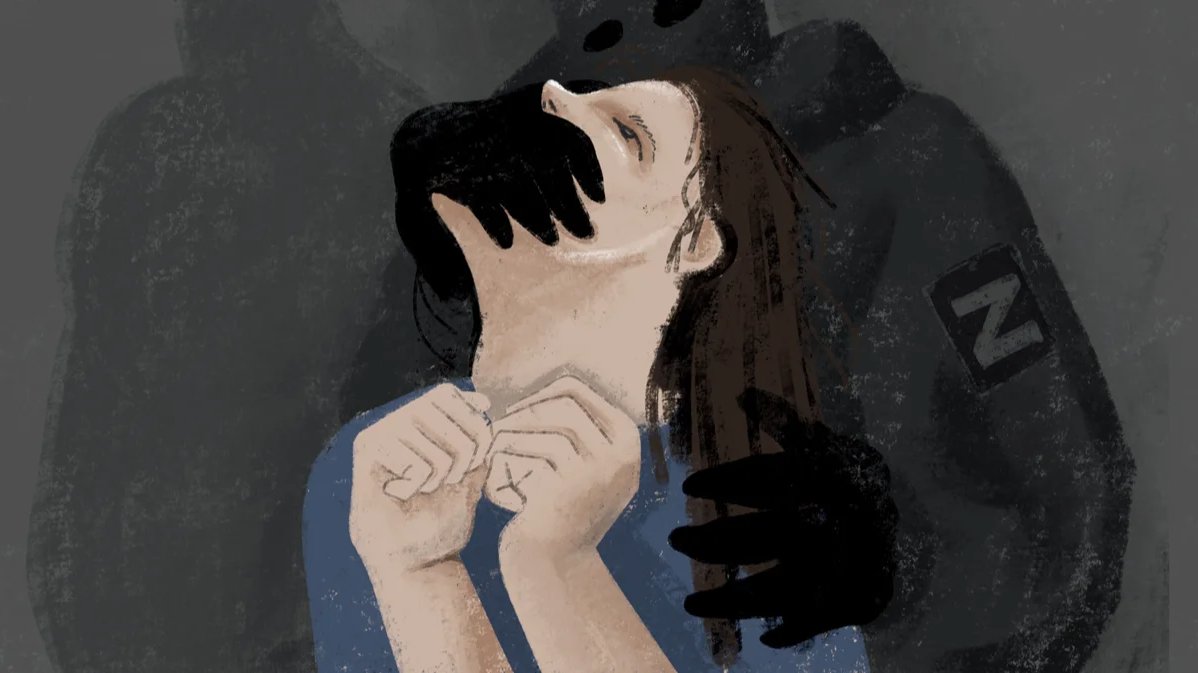This article was originally published by Novaya Gazeta Baltic. Please be aware that it contains descriptions of sexual violence.
In March 2023, a woman in a southern Russian city found a baby wrapped in a blanket in the bins behind her block of flats. Police soon found camera footage of a woman dumping the newborn baby girl at around 5am the previous morning. Incredibly, she survived.
The mother of the child was a Ukrainian refugee who had moved to Russia in August 2022 after her hometown in Ukraine was occupied. She was tracked down and charged with the attempted murder of a minor and placed in pretrial detention.
The lawyer assigned to her case told Novaya Baltic the story, though she has asked that neither her name nor her client’s name be used.
Initially, her client barely spoke, but then one day she suddenly said, “I was raped.”
It gradually emerged that her attacker had been a Russian soldier in occupied Ukraine. By the time she decided to terminate the pregnancy, it was too late to have an abortion anyway, at which point she decided to carry the baby to term, believing she could grow to love it.
“Then she gave birth at home, and just broke down to the point where, the next day, she put the baby in the bin,” her lawyer said.
Shaken by the story, the lawyer believed she could at least use the new information to plead extenuating circumstances, but her client panicked at the thought, telling her, “You can’t tell anyone.” As a result, the court never learnt about the rape and the woman is now awaiting the court’s verdict.
Fight or flight
Alina (not her real name), 31, went to Spain to escape the war. In the summer of 2022, she opened a beauty salon in Valencia, where I went to speak to her.
Her friend, Valentyn, also a hairdresser from Kyiv, put me in touch with her. All I knew was that something terrible had happened to her in Ukraine at the hands of the Russian military. “She’ll talk to you and tell you what she thinks she needs to tell you,” he told me the day before.
We went to the beach to talk, though I had no idea how to begin the conversation, though I did know what I mustn’t say — I mustn’t ask why.
“On the first day of the war, I took my cat, Pirozhok, and went to my mother’s village near Bucha,” Alina begins. “First, for some reason, I thought it would be safer there than in Kyiv. Second, I wanted to be with my mother so that I could help her if anything happened.”
Russian soldiers soon showed up in the village, but for a while Alina and her mother managed to live peacefully by staying indoors.
“But one evening, a tank stopped in front of our gate, soldiers came into the house and forced my mother and me into the cellar. It was scary. My mother couldn’t stop crying. … But I was on some kind of adrenaline rush and remained calm and collected,” Alina remembers.
Later, a neighbour, slightly older than Alina, her mother, grandmother and grandfather were also herded into their cellar.
“Late on the second day, the cellar door opened, a drunk soldier appeared — the stench of alcohol hit us all the way downstairs — and nodded at me saying, ‘Come out of there’.
I was scared. My mother started begging him, ‘Don’t, don’t’. He pointed a weapon at us. I climbed up the stairs. They raped me in the house and then brought me back to the basement.”
“I could have risked trying to run, but I was afraid they’d kill me,” Alina said. “And my mother was still in the cellar. I thought they might shoot her in anger.”
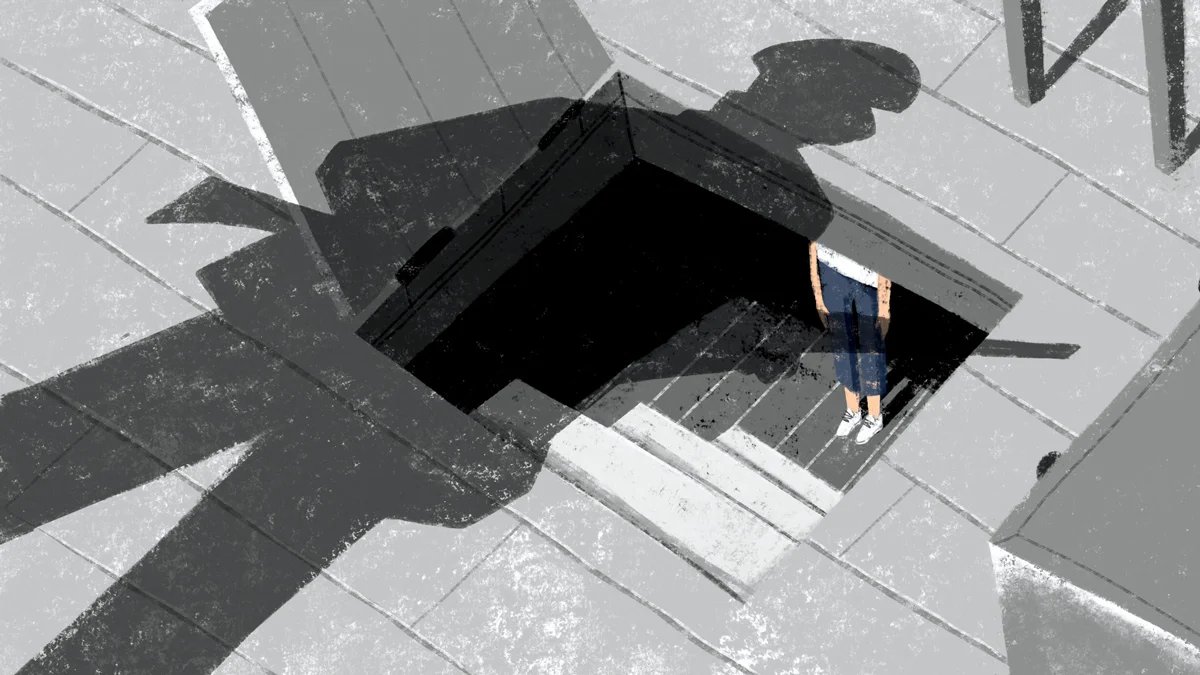
Illustration by Nastya Pokotinska / Novaya Gazeta Europe
Pirozhok
Alina says nobody, not even her mother, asked her anything about what had happened when she returned to the cellar. The next day, nobody came looking for her. But the day after, the door opened and she was summoned upstairs once again. She was shoved into the house and soldiers in uniform ordered her to fry potatoes for them while they drank vodka and smoked. She remembers there were originally three men in the house and then another two appeared. One of them threw a stick of salami down on the table for her to cut.
As Alina removed the skin, she noticed Pirozhok poking his nose out from under the sofa.
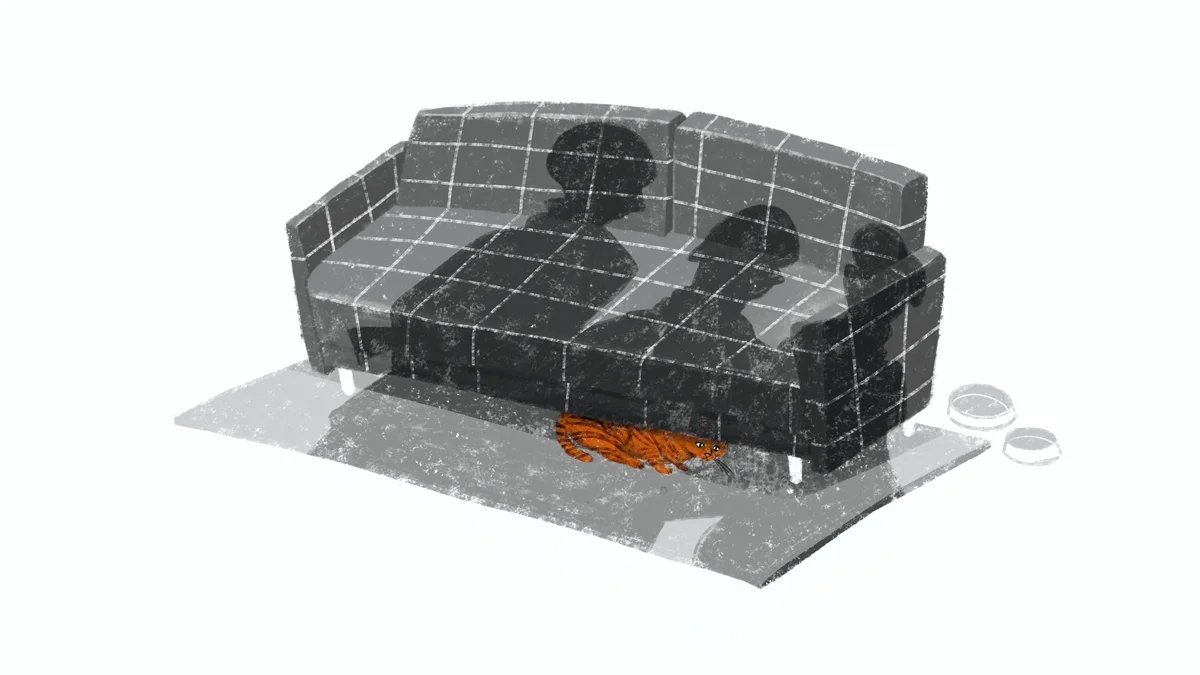
Illustration by Nastya Pokotinska / Novaya Gazeta Europe
“I was so scared that I’d completely forgotten he had been in the house all this time,” she says. “He was really scared, too. And while they were drinking and laughing in the next room, I noticed that Pirozhok had seen me, smelled the sausage and was looking around but was too afraid to come out,” she continued.
“I saw the savages hadn’t even given him water. I cut off a bit of meat and lured him with it. He grabbed it and ran away with it in his teeth when a soldier appeared, said, ‘What the fuck’s this?’ and shot him. Then he burst out laughing like a madman.”
Alina says that the soldiers’ own cruelty only seemed to get them even more riled up.
“I’m sure they were all on drugs, as well as being drunk out of their minds,” she said. “When they raped me, they were insanely loud and nasty as they insulted me and screamed and shouted. It was like…” but at that point she fell silent, unable to find the words.
‘We just want to relax and have fun’
In times of war, all the civil cultural prohibitions that normally exist fall away immediately, says Asmik Novikova, a sociologist at the Public Verdict Foundation, a Russian non-profit offering legal assistance to victims of human rights abuses. Novikova has carried out research into the mental and behavioural changes seen in Russian police officers after returning from the wars in Chechnya.
Cases of rape were barely recorded during the Chechen wars, says Alexander Cherkasov, the former chairman of the now liquidated Human Rights Centre Memorial. The sole case that made it to court was that of Colonel Yury Budanov who was arrested in 2000 on charges of kidnapping, raping and murdering 18-year-old Chechen Elza Kungaeva. Witness testimony helped prove his guilt in a trial that gripped the nation.
“However, the paperwork documenting sexual violence simply disappeared from the case file,” he continues.
Budanov was released on parole in 2009. He was shot eight times and killed in central Moscow in June 2011. The Chechen man convicted of the killing, Yusup Temirkhanov, denied his guilt until dying in prison himself in 2018.
“Can we say for sure that Russian soldiers raped Chechen and now Ukrainian women on orders from above, as happened in other conflicts? We don’t yet have concrete evidence,” says Anna Neistat, a legal director and specialist in international criminal law at the Clooney Foundation for Justice, a human rights nonprofit set up by George and Amal Clooney. “The cases we’re now pursuing are for crimes allegedly committed by very young, drunk, low-level servicemen.
When women asked them, ‘Please don’t kill us,’ the soldiers answered, ‘We’re not going to kill you. We just want to relax and have fun’.”
However, Neistat stresses that whether or not soldiers are following orders, each case of rape is a crime under international law.
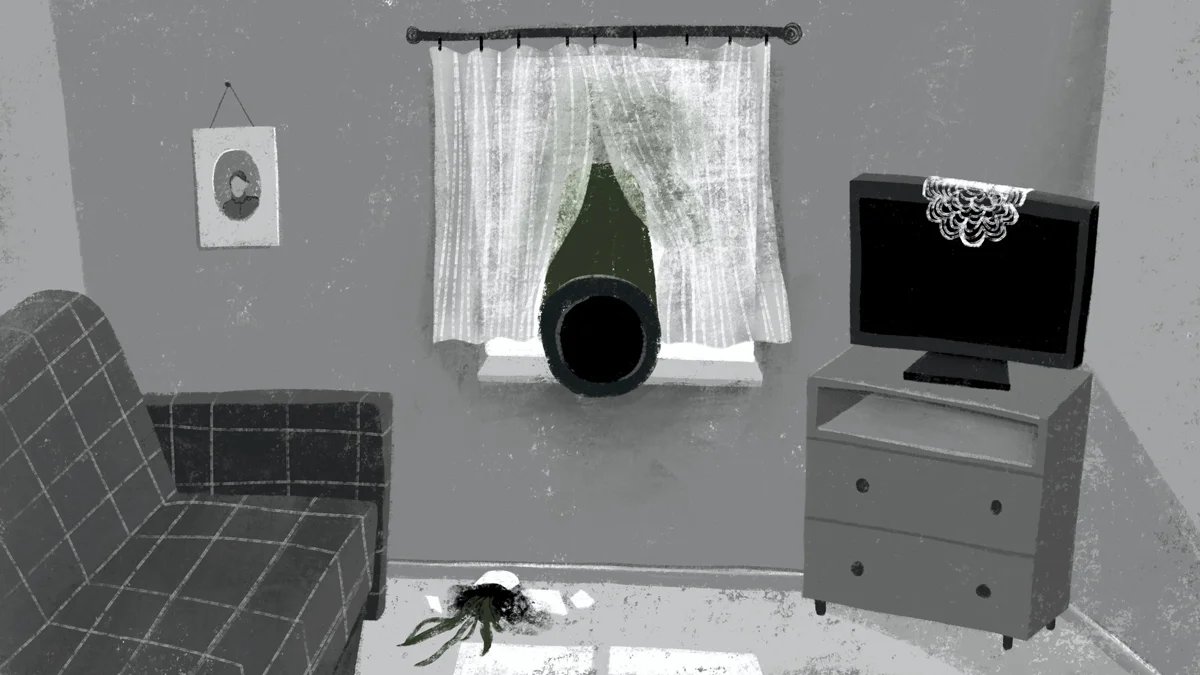
Illustration by Nastya Pokotinska / Novaya Gazeta Europe
‘I can’t put it behind me’
Alina says they were kept in the cellar for four days. Then the Russians left the village and they emerged. Ukrainian soldiers, journalists and volunteers then appeared.
“But it didn’t end there for me,” Alina says. “Because wherever I went, I could see in the neighbours’ eyes that everyone knew everything. They were judging me.”
So when human rights activists asked locals to report all crimes to the police, Alina chose not to. “I thought, ‘Why bother? So people would look at me as a traitor again?’ I was done.”
Alina’s mother died in 2022, her health having deteriorated significantly after her spell in the cellar. Alina attributes her decline to the trauma she endured.
Alina returned to Kyiv after her mother’s death, but in early June, her friend Valentyn suggested she join him in Valencia. He helped her settle in and find work.
Alina now sees a psychologist, but is unsure if it helps. “I can’t put it behind me. I am and always will be in this state until I die.”
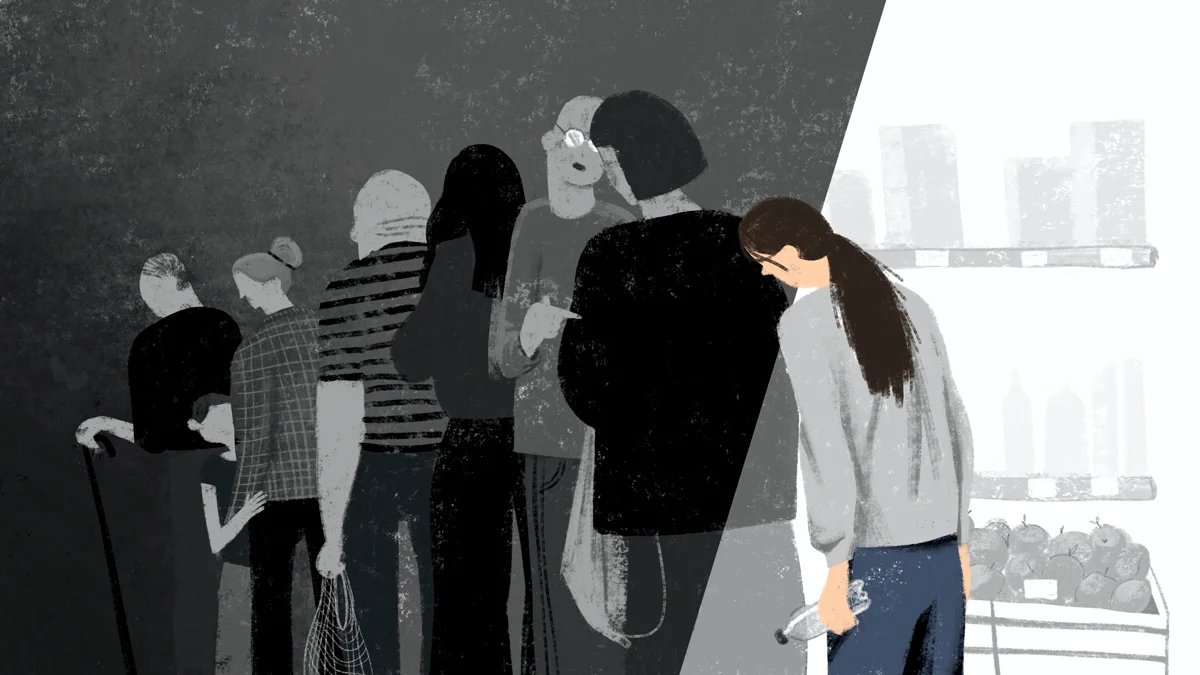
Illustration by Nastya Pokotinska / Novaya Gazeta Europe
‘Not something people are willing to talk about’
This February, Anna Sosonska, head of the conflict-related sexual violence unit at the Ukrainian Prosecutor General’s Office, said a single department had “identified 270 serious crimes of violence against women, men, civilians and prisoners of war” in Ukraine. In addition to the rapes themselves, there were also cases of the occupiers mutilating genitals, and forcing people to strip naked and watch loved ones being subjected to sexual violence. The Prosecutor’s Office identified 30 Russian servicemen who had committed acts of sexual violence during the war. All 30 men were charged. Two were convicted and sentenced in absentia to 12 and 10 years in prison respectively. The victims, witnesses and the prosecutor all spoke at these trials, but there were no defendants.
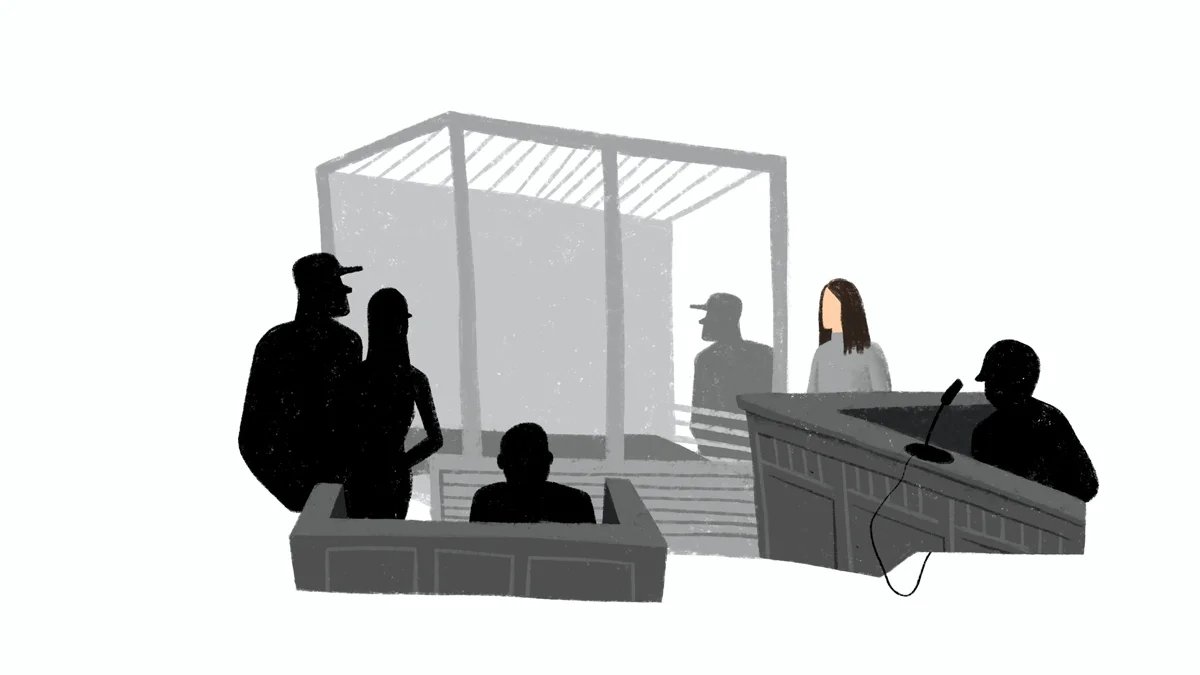
Illustration by Nastya Pokotinska / Novaya Gazeta Europe
Sosonska added that since Russia launched its full-scale invasion of Ukraine in February 2022, her department had made efforts to train its investigators to work with victims according to international standards.
In 2017, Ukrainian lawyer Larysa Denysenko and some colleagues set up JurFem, an association of women lawyers, to help female rape survivors. She is currently pursuing 14 rape cases at the hands of the Russian military, in one of which the victim was a minor.
“Women whose relatives serve in the Ukrainian Armed Forces try not to talk about what’s happened to them,” Denysenko told independent news outlet Ukrainska Pravda on 7 August, explaining that women often conceal the fact that they were raped from their husbands in the military out of fear of causing them extreme guilt at having been unable to protect their family.
Black screen
“In November 2023, I was approached by the mother of a young woman who asked me to talk to her daughter. She said her daughter had been raped by Russian soldiers while they occupied their city. She was 16 at the time,” says Valeria Shvydchenko, a Ukrainian psychotherapist.
By that time, the woman and her daughter had lived in Hungary for about a year. The rape survivor didn’t finish school.
“Her mother called me and said, ‘Please help my daughter. She’s really scaring me. It’s like she’s inanimate.’ I asked ‘What do you mean? Is she completely apathetic?’ And she said, ‘That’s the thing. It’s not that at all. She gets up early, brushes her teeth, combs her hair, has breakfast, goes to work, comes home, has dinner, watches TV and goes to bed. With no emotion. She’s like a robot. It’s driving me crazy. I don’t know how to talk to her about what she went through. I’m scared that one day she’ll just quietly take her own life.’”
“My mother is very worried about me,” the daughter said, having agreed to speak to Shvydchenko. “But I don’t want to discuss anything, sorry. If we can, let’s just make the call, turn off the camera and microphone for an hour, and I’ll tell my mother that we discussed everything we had to.”
The psychotherapist agreed, secretly hoping that at some point she’d speak.
“We held four sessions that way. Each time she said hello, and after that it was a black screen and the crossed-out microphone icon,” Shvydchenko says. After those four sessions, they never spoke again.
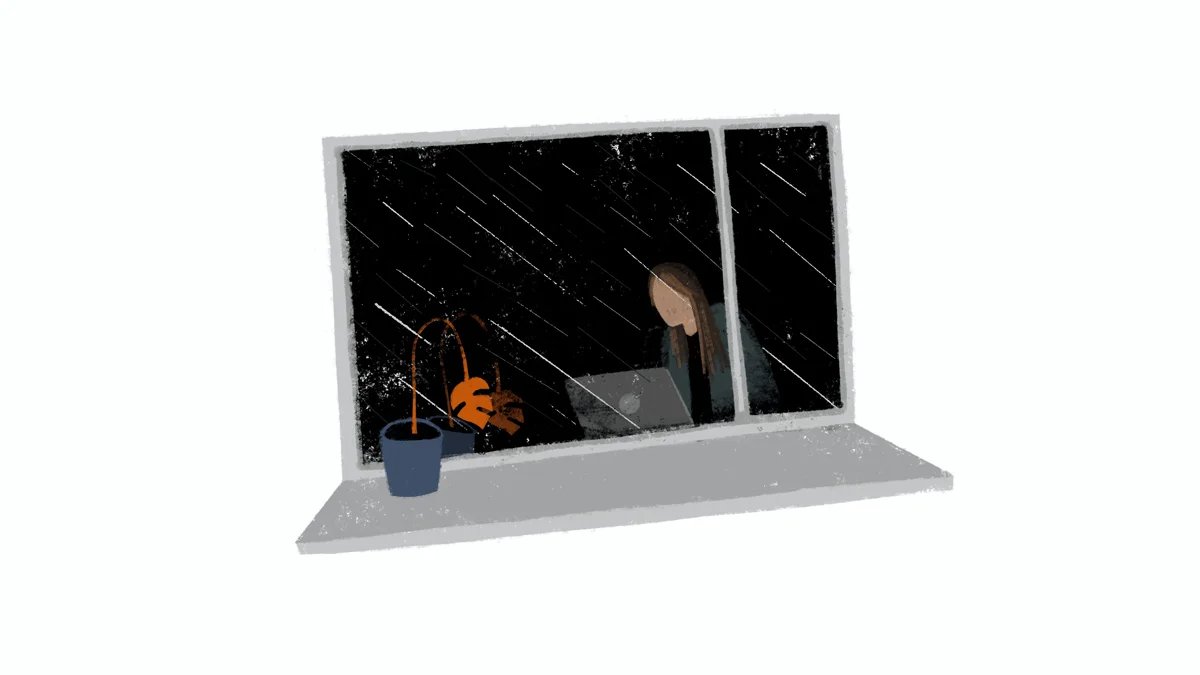
Illustration by Nastya Pokotinska / Novaya Gazeta Europe
Irina Kravtsova
Join us in rebuilding Novaya Gazeta Europe
The Russian government has banned independent media. We were forced to leave our country in order to keep doing our job, telling our readers about what is going on Russia, Ukraine and Europe.
We will continue fighting against warfare and dictatorship. We believe that freedom of speech is the most efficient antidote against tyranny. Support us financially to help us fight for peace and freedom.
By clicking the Support button, you agree to the processing of your personal data.
To cancel a regular donation, please write to [email protected]
